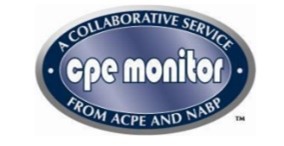Announcer:
Welcome to CME on ReachMD. This episode is part of our MinuteCE curriculum.
Prior to beginning the activity, please be sure to review the faculty and commercial support disclosure statements as well as the learning objectives.
Dr. Abou-Alfa:
This is CME on ReachMD, and I’m Dr. Ghassan Abou-Alfa from Sloan Kettering, New York.
Dr. He:
This is Dr. Ruth He from Georgetown University Hospital from Washington, DC.
Dr. Abou-Alfa:
A shared decision-making process empowers patients to take an active role in their care. Ruth, what's your view on the role of the shared decision-making in unresectable HCC?
Dr. He:
Yeah. I think I'll start with what is important in patient. I know what is important from a medical oncologist point of view is, we want a good response rate, and we want to have an improved overall survival. But from patients’ perspective, what is the quality of life, and can they keep the regular working routine, and what kind of adverse events they may experience?
So, now we are at a luxury to have many treatment options in the frontline for advanced HCC. So, we would want to share information with patients so then they can also take part of the decision-making. I think that will increase the satisfaction from the patient.
Ghassan, what are your thoughts on shared decision-making?
Dr. Abou-Alfa:
Thank you, Ruth. If anything, I agree with you totally. We have to remember, patients come to us specifically with two questions. Number one, of course, the most critical, they want to live, and thankfully, with all the advancements, all of the different therapies that were discussed, we definitely are able and proud that we're able to enhance on outcome.
On the other hand, of course, they don't want to hurt. They don't want safety issues, and they don't want adverse events issues. So, safety profiles, understanding is critical. Very important, we’ll pass it on to the patient, is not the rudimentary things like just, if you do this, you get that, but rather, give them the big picture. Let them appreciate this can really impact them negatively, and that’s why in continued discussion and interaction with their medical team is critical.
And interestingly, while we never thought of that in regard to chemotherapy, when it comes to the checkpoint inhibitors, for the first time, we have seen that patients who are on the checkpoint inhibitors, like with the durvalumab/tremelimumab, and this data was reported beforehand, that patients with adverse events will fare better. There's a major improvement to survival. We don't wish it for the patient, but you have to reassure the patient, if you have some little side effects, like a bit of a joint pain, a little bit of rash with the durvalumab/tremelimumab, it's good news that they are really improving in outcome and there's good, definitely, benefit from those subtle adverse events.
We also give credit for the quality-of-life patient-reported outcomes. We have seen it just with that Dr. Galle reporting on the combination of nivolumab/ipilimumab. Good that we are able to really bring this up in many studies, and if anything, to better understand to better combat the fears and of course, to improve on the outcome of patients.
Dr. He:
Yeah, Ghassan, I, for sure, I have noticed that every randomized Phase 3 HCC trial has a patient-reported outcome questionnaire. You can see that also the field has put a lot of effort trying to understand how well patients tolerate those treatments for their cancer.
And I think this is very important is, that will depict how patient will do while they’re on treatment. I think we try to learn from those studies and then, maybe provide the best treatment choice for patients based on how they feel.
Dr. Abou-Alfa:
I think we both summarized for you that after all, it’s teamwork. We cannot engage the patients without involving and hearing the patient perspective. We know that we have to look into what the patients are looking for.
And now, we have the many choices of therapy that are available to us, and we proudly are able to provide improvement in survival, but also, we have to acknowledge the second concern of the patients, that is the adverse events. We have to reassure the patients in regard to the safety profiles, make sure they are aware that we are readily available at all times to be helping them in regard to the management of any of those adverse events. And as we said, some of those adverse events might even, especially with the checkpoint inhibitors, might imply a better outcome.
Well, that's the time we have for today. Thank you for the best discussion, Dr. He, and thanks for our audience for listening.
Announcer:
You have been listening to CME on ReachMD. This activity is provided by Total CME, LLC and is part of our MinuteCE curriculum.
To receive your free CME credit, or to download this activity, go to ReachMD.com/CME. Thank you for listening


 In support of improving patient care, Global Learning Collaborative (GLC) is jointly accredited by the Accreditation Council for Continuing Medical Education (ACCME), the Accreditation Council for Pharmacy Education (ACPE), and the American Nurses Credentialing Center (ANCC) to provide continuing education for the healthcare team.
In support of improving patient care, Global Learning Collaborative (GLC) is jointly accredited by the Accreditation Council for Continuing Medical Education (ACCME), the Accreditation Council for Pharmacy Education (ACPE), and the American Nurses Credentialing Center (ANCC) to provide continuing education for the healthcare team.


